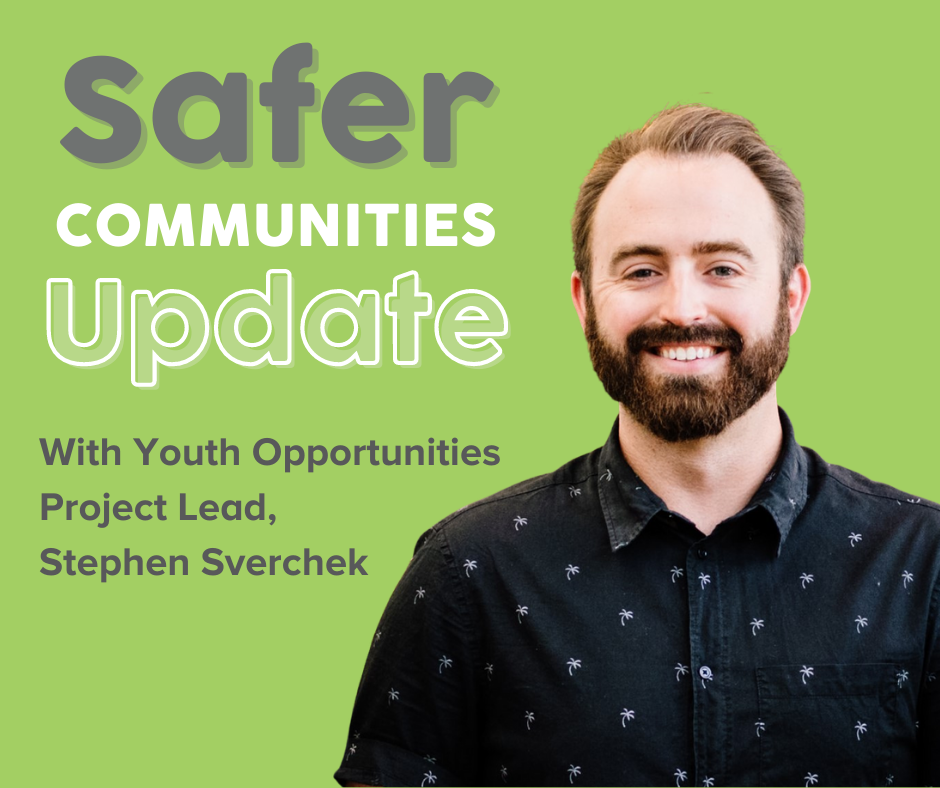At Youth Opportunities, our vision is a world where all young people have the opportunity to be their best, and, while our personal leadership programs are valuable for all young people, we are working hard to ensure we reach those who need it the most.
In 2021, Youth Opportunities was supported by seed funding through the Milner Road Foundation to run a pilot with the Youth Education Centre, working with young people who were at risk of having and/or have had experience with the youth justice system. The success of this pilot, along with the overall quality outcomes and impact of our programs during the past 25 years, has led to Youth Opportunities recently being awarded a 2.5 year grant through the Federal Government’s Safer Communities Fund: Early Intervention Grants, allowing us to expand this program to reach more education providers across SA, and work with additional small groups of young people who require an increased level of support to re-engage with education and the community.
Recently, we spoke to Stephen Sverchek, Youth Opportunities Projects Lead, to talk about the Safer Communities project and its aims.
Q: What is Safer Communities all about?
A: The Safer Communities project is an initiative created to reduce the risk of young people engaging with the criminal justice system. The project will see Youth Opportunities work with small groups of young people to reduce the elements in their life that may affect their ability to be their best, delivered in a setting, timeframe, and manner that best meets their needs. Through this project, we aim to increase these young people’s opportunities to become positive, contributing members of their communities in the long term.
To ensure the best outcomes for all young people we work with, we are particularly focused on identifying the differing needs amongst at-risk young people and working to meet those needs with specialised delivery methods.
Q: How are we implementing this?
A: Currently, we are working to develop a program that takes the evidence-based tools and concepts from our flagship Personal Leadership Program, developed by Marshman Foundation, and identifying the key aspects that will be most effective for these young people in this new environment.
We have partnered with four secondary schools in the Northern suburbs of South Australia, who have already provided incredibly valuable feedback and resources, to coproduce a pilot model to be delivered in 2023 that will be as effective as possible to reach the young people who need it.
When compared to the 10-week Personal Leadership Program, the new program will involve smaller groups of young people and will be delivered in reduced daily hours but over a longer time period, to provide a succinct and highly interactive environment that allows for increased focus and engagement.
Q: How is it going so far?
A: The project kicked off in June 2022 and is currently in the first stage – development– which allows us to build the strong foundations needed to create an effective program. We are set to wrap up this stage by the end of this year and move to the second stage – delivery – in 2023.
So far, we’ve built a great hub with our four partner schools. This is a strong team that will be working together to address similar experiences. We have consulted with educators from these schools to allow for feedback and contributions which will be incorporated into the future program.
We have also recently hired several new staff members with specific skills to work with the young people that will interact with this program, as well as collaborating with Marshman Foundation to put an evidence-based lens across the program focusing on implementing proven preventative methods.
Finally, we’ve begun to incorporate learnings from the small pilot program that began in 2021 in conjunction with the Youth Education Centre. This pilot worked with young people who have engaged with the youth criminal justice system and provided an important practical understanding of the strategies we can use to ensure success when implementing the Safer Communities project.
Q: Where to from here?
Q: The project timeline is split into three separate stages: development, delivery, and evaluation. With the development stage to be completed by the end of 2022, we are looking forward to delivery throughout 2023, and finally, evaluation to be completed by mid-2024.
This is an exciting, but important project and I am looking forward to sharing our progress and outcomes further down the line with all of you who continue to make our work, and the outcomes for the young people we support possible.

